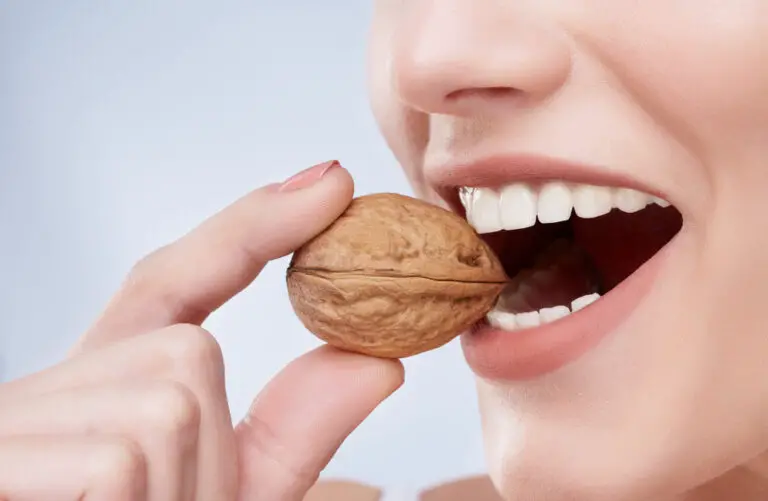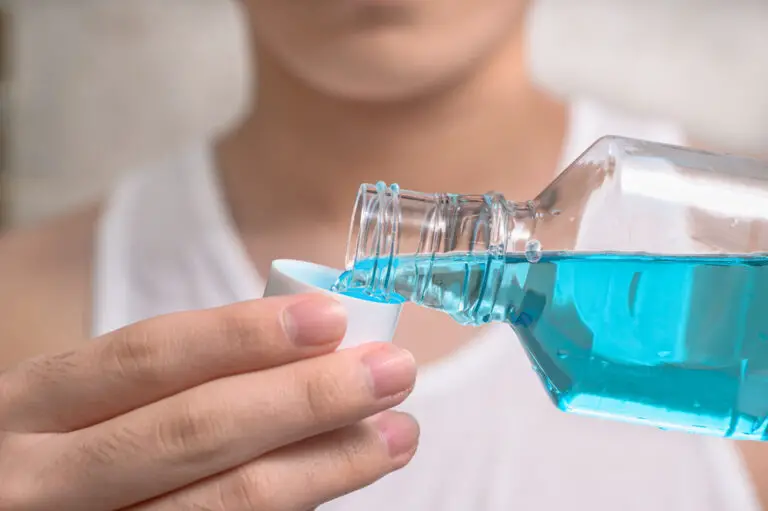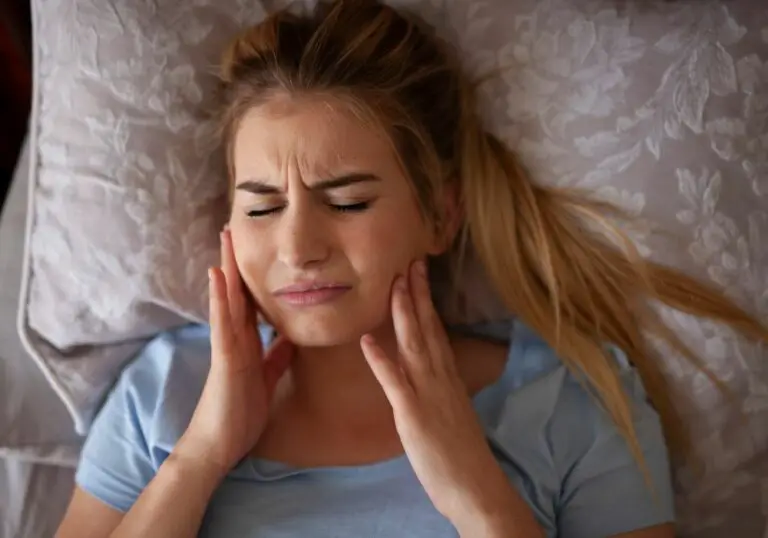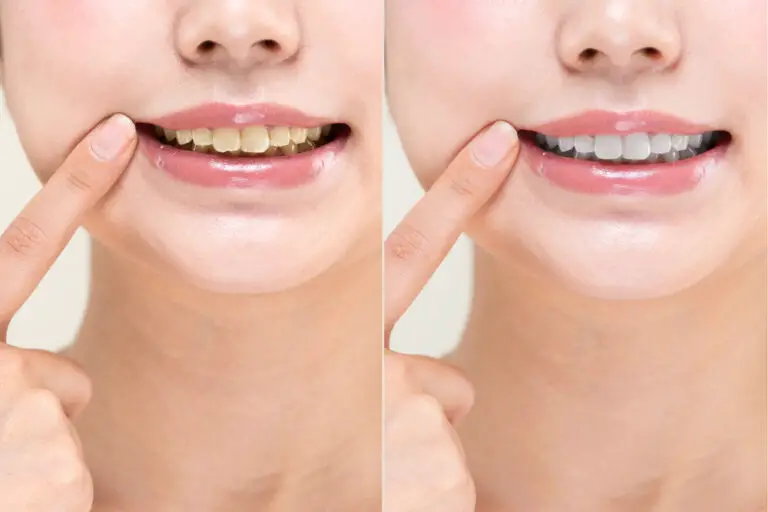Are you wondering if your teeth will fall out at 14? It’s a common question among teenagers who are experiencing changes in their bodies. While losing teeth is a natural part of growing up, the timing can vary from person to person. In this article, we’ll explore when and why teeth fall out and what you can do to keep your teeth healthy.
First, it’s important to understand the process of losing teeth. Baby teeth, also known as primary teeth, start to fall out around age 6 and are gradually replaced by permanent teeth. By the time a person reaches their teenage years, most of their permanent teeth have already come in. However, there are a few teeth that may not come in until later, such as wisdom teeth. Additionally, some people may experience delayed tooth eruption, which means their teeth come in later than usual.
So, do teeth fall out at 14? It’s possible, but it’s not common for all of your permanent teeth to fall out at once at this age. If you do lose a tooth, it’s important to take care of the empty space to prevent other teeth from shifting. In the next section, we’ll discuss some of the reasons why teeth may fall out and what you can do to prevent it.
Understanding Teeth Development
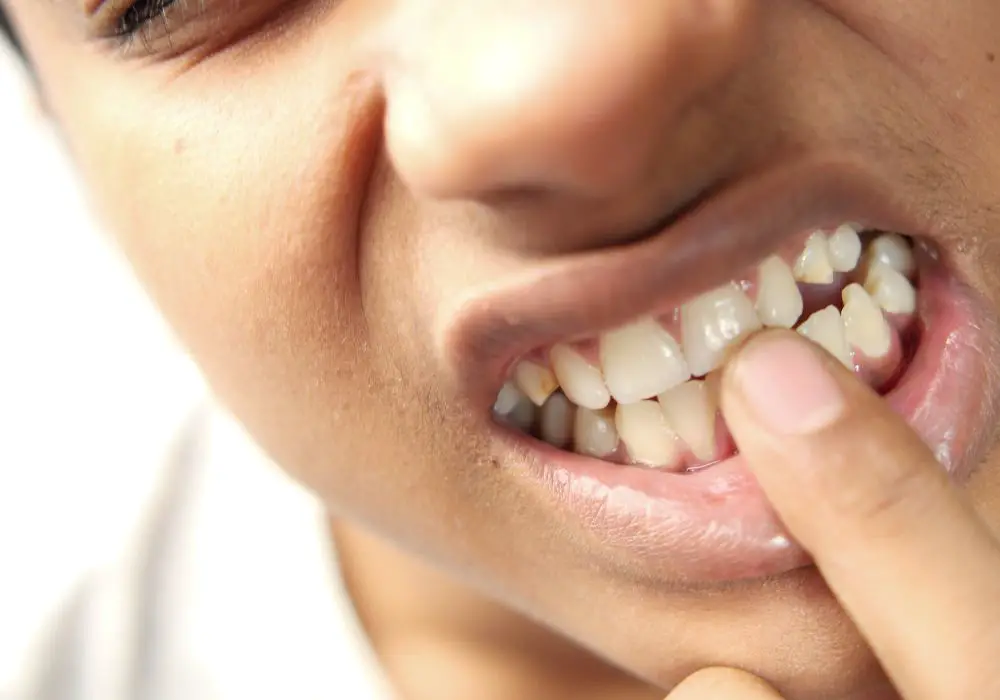
Teeth development in children is a gradual process that occurs in stages. Understanding the stages of teeth development can help you know when to expect certain changes and ensure that your child’s dental health is on track.
Baby Teeth
Baby teeth, also known as primary teeth, are the first set of teeth that develop in children. They usually begin to emerge around six months of age and continue to erupt until the child is about two to three years old. By the time your child is three years old, they should have a full set of 20 baby teeth.
The following table shows the order in which baby teeth typically erupt:
| Age (months) | Teeth |
|---|---|
| 6 | Lower central incisors |
| 8 | Upper central incisors |
| 10 | Upper lateral incisors |
| 10-12 | Lower lateral incisors |
| 14 | First molars |
| 18 | Canines |
| 20 | Second molars |
Baby teeth serve several important functions, including helping your child learn to chew and speak properly. They also hold space in the jaw for the permanent teeth that will eventually replace them.
Permanent Teeth
Between the ages of six and 12, children begin to lose their baby teeth and develop permanent teeth. The first permanent teeth to emerge are usually the molars, which come in behind the baby teeth. By the time your child is 14 years old, they should have all of their permanent teeth except for their wisdom teeth.
The following table shows the order in which permanent teeth typically erupt:
| Age (years) | Teeth |
|---|---|
| 6-7 | First molars |
| 7-8 | Central incisors |
| 8-9 | Lateral incisors |
| 9-10 | Canines |
| 10-12 | Premolars |
| 12-13 | Second molars |
| 17-25 | Wisdom teeth |
It’s important to note that the timing of tooth eruption can vary from child to child. If you have concerns about your child’s teeth development, talk to your dentist. They can help you determine if your child’s teeth are developing normally and provide guidance on how to care for their teeth and gums.
Age 14: A Crucial Stage
At age 14, many teenagers are going through significant changes in their bodies, including their teeth. While some may have already lost most of their baby teeth, others may still be waiting for their permanent teeth to come in. Here are some things to keep in mind during this crucial stage.
Late Bloomers
If you are 14 and still have some baby teeth, don’t worry – you’re not alone. Some people are “late bloomers” when it comes to losing their baby teeth, and it’s perfectly normal. In fact, the American Dental Association notes that it’s not uncommon for some people to have a few baby teeth until they are 17 or 18 years old.
If you’re concerned about your teeth, talk to your dentist. They can take X-rays to see if your permanent teeth are developing properly and give you advice on how to take care of your teeth in the meantime.
Early Developers
On the other hand, if you’re 14 and have already lost most of your baby teeth, congratulations – you’re an early developer! This is also normal, and it means that your permanent teeth are coming in as they should.
However, it’s important to remember that just because your permanent teeth have come in doesn’t mean you can neglect your dental hygiene. In fact, it’s more important than ever to take care of your teeth and gums to prevent cavities, gum disease, and other dental problems.
Make sure you brush twice a day with fluoride toothpaste, floss daily, and visit your dentist regularly for checkups and cleanings. And if you play sports, consider wearing a mouthguard to protect your teeth from injury.
At age 14, your teeth are still developing and changing. Whether you’re a late bloomer or an early developer, it’s important to take care of your teeth and visit your dentist regularly to ensure a healthy smile for years to come.
Causes of Teeth Falling Out at 14

If you’re 14 and experiencing tooth loss, it can be a cause for concern. While losing baby teeth is a natural part of growing up, losing permanent teeth at a young age can indicate an underlying issue. Here are a few common causes of teeth falling out at 14:
Tooth Decay
Tooth decay is a common cause of tooth loss in people of all ages, including teenagers. Poor oral hygiene, a diet high in sugar and acidic foods, and a lack of fluoride can all contribute to tooth decay. If left untreated, decay can progress to the point where the tooth becomes loose and falls out.
To prevent tooth decay, it’s important to brush your teeth twice a day with fluoride toothpaste, floss daily, and limit sugary and acidic foods and drinks.
Injury
Injury to the mouth or face can also cause teeth to fall out. This can happen during contact sports or accidents. If a tooth is knocked loose or out of its socket, it’s important to see a dentist right away. In some cases, the tooth can be saved if it’s re-implanted within a certain amount of time.
To prevent dental injuries, it’s important to wear a mouthguard during contact sports and to take precautions when engaging in other physical activities.
Genetics
Some people are more prone to tooth loss due to genetic factors. For example, some people may have weaker tooth enamel or be more susceptible to gum disease. If you have a family history of tooth loss or dental issues, it’s important to be extra vigilant about your oral hygiene and to see a dentist regularly.
While tooth loss at 14 can be concerning, there are steps you can take to prevent it. By practicing good oral hygiene, protecting your teeth from injury, and being aware of your family history, you can help ensure a healthy smile for years to come.
Preventing Premature Tooth Loss
Losing a tooth at any age can be a concerning issue. However, losing a tooth prematurely, especially at the age of 14, can be a significant problem. Fortunately, there are several preventive measures that you can take to avoid losing your teeth early.
Good Oral Hygiene
One of the most effective ways to prevent premature tooth loss is by maintaining good oral hygiene. Brushing your teeth twice a day with fluoride toothpaste can help remove plaque and bacteria that can cause tooth decay and gum disease. Flossing your teeth at least once a day can also help remove food particles and plaque from between your teeth and gums.
In addition to brushing and flossing, you should also consider using mouthwash to kill bacteria and freshen your breath. However, you should be careful not to use mouthwash as a substitute for brushing and flossing.
Regular Dental Checkups
Another essential step in preventing premature tooth loss is by scheduling regular dental checkups. Visiting your dentist at least twice a year can help detect early signs of tooth decay and gum disease. Your dentist can also clean your teeth and remove any plaque or tartar buildup that may lead to tooth loss.
During your dental checkup, your dentist may also recommend preventive treatments such as fluoride treatments or dental sealants to protect your teeth from decay. Your dentist may also advise you on proper oral hygiene techniques and recommend dietary changes to improve your oral health.
In conclusion, preventing premature tooth loss requires a combination of good oral hygiene and regular dental checkups. By following these preventive measures, you can maintain healthy teeth and gums and avoid losing your teeth prematurely.
When to Seek Professional Help
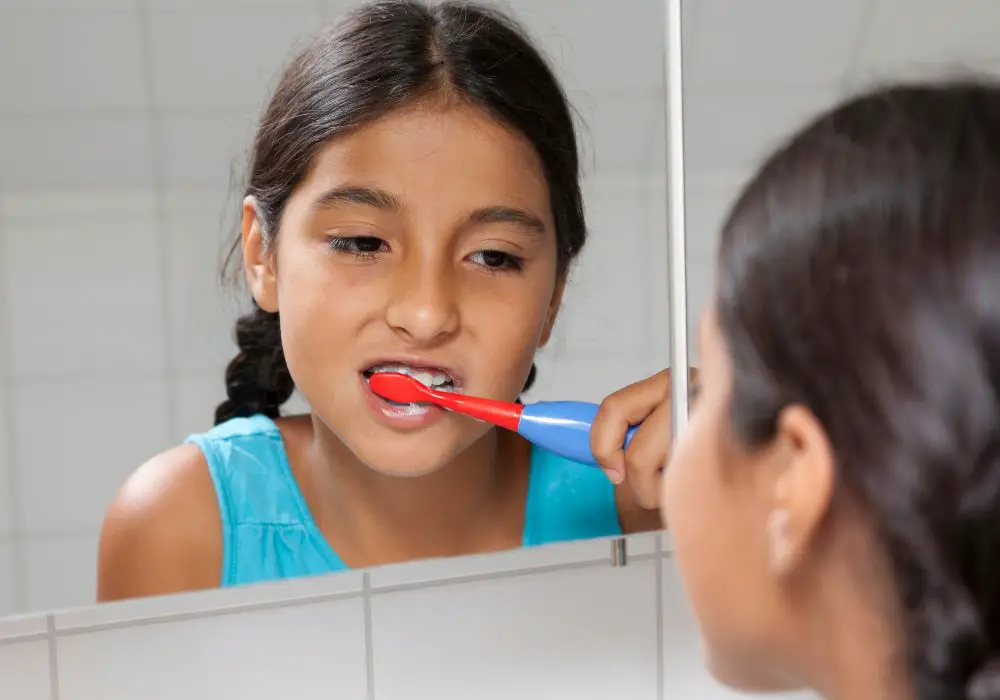
If you’re 14 and experiencing loose teeth, it’s important to know when to seek professional help. Here are two signs that indicate it’s time to make an appointment with your dentist.
Persistent Loose Teeth
While it’s normal for teeth to feel a little wobbly when they’re about to fall out, if your teeth are persistently loose, it may be a sign of a more serious issue. Periodontitis, a serious gum infection, can cause teeth to loosen and fall out. If you notice your teeth shifting or moving more easily than normal, or if you notice wearing or damage to the affected tooth, it’s time to make an appointment with your dentist.
Pain and Discomfort
If you’re experiencing pain or discomfort in your teeth or gums, it’s a sign that something isn’t right. Tooth decay, cavities, and gum disease can all cause pain and discomfort. If you’re experiencing these symptoms, it’s important to seek professional help as soon as possible. Your dentist can diagnose the problem and recommend treatment options to alleviate your pain and discomfort.
Remember, it’s important to take care of your teeth and gums to prevent serious issues from developing. Brush and floss regularly, eat a healthy diet, and visit your dentist for regular checkups and cleanings. If you’re experiencing persistent loose teeth, pain, or discomfort, don’t hesitate to seek professional help. Your dentist can help you maintain a healthy and beautiful smile for years to come.
Frequently Asked Questions
Which teeth fall out first?
The two bottom front teeth (lower central incisors) and the two top front teeth (upper central incisors) are usually the first teeth to fall out. These are typically milk teeth or primary teeth.
How many milk teeth fall out?
Generally, children have 20 milk teeth, and they will lose all of them by the time they are 12 to 13 years old.
Is it normal to lose a tooth at 14?
Yes, it is normal to lose a tooth at 14. The timing of tooth loss can vary from person to person, but most children lose all their milk teeth by the age of 12 to 13, and their permanent teeth should have already started to come in.
Do you get new teeth at 14?
Yes, you may get new teeth at 14. Most of the permanent teeth have already erupted by the age of 14, but there are still some teeth that may come in later, such as the wisdom teeth.
Is it OK to lose a tooth at 15?
Yes, it is normal to lose a tooth at 15. The timing of tooth loss can vary from person to person, but most children lose all their milk teeth by the age of 12 to 13, and their permanent teeth should have already started to come in.
How many teeth should a 14 year old have lost?
By the age of 14, most children should have lost all their milk teeth and have 28 permanent teeth. However, some children may still have some baby teeth, and some may have already gotten their wisdom teeth. If you have any concerns about your child’s teeth, it’s always best to consult with a dentist.



